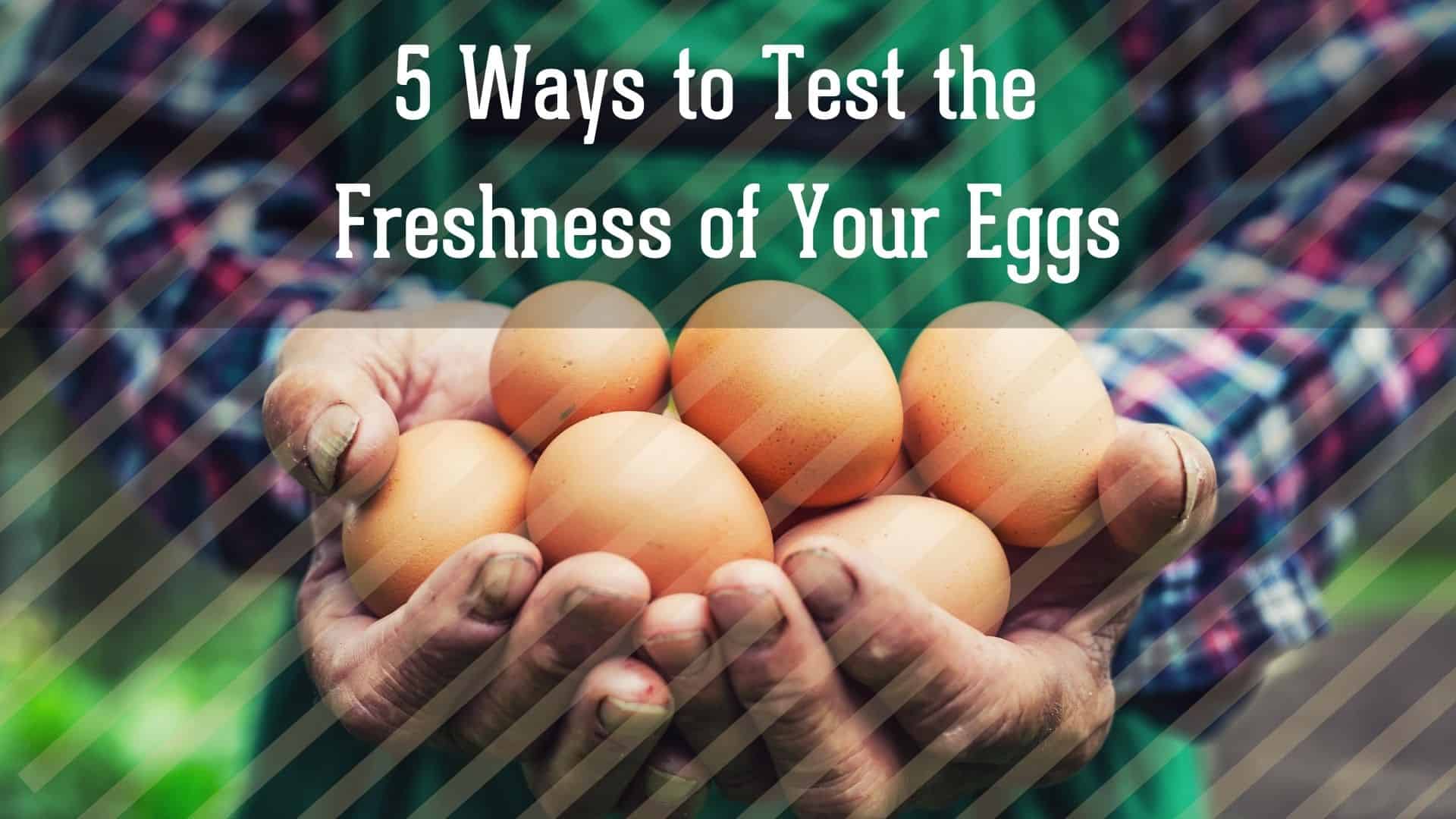
Is there anything better than farm fresh eggs? From the bright orange yolk to the fresh flavor, nothing quite compares to an egg from one of your very own hens.
And if you have multiple chickens laying eggs you could be getting more than you can eat! Which is why it’s important to know how to store your farm fresh eggs safely.
This article will explain the different approaches to storing eggs, and how to tell if your egg is “past it’s prime” and shouldn’t be consumed.
Room Temperature vs. Refrigerator
If you intend to store your chicken eggs at room temperature, do not wash your eggs. We know, it sounds a bit off…but hear us out.
If you wash your eggs, the egg bloom will get washed off. The egg bloom is a natural, film-like, barrier that protects the contents of an egg from outside bacteria.
With the bloom left in place, freshly laid eggs can remain at room temperature for a few days to weeks depending upon the environment.
On the other hand, if you choose to wash your eggs, they must be stored in the fridge because the bloom has been washed off.
In fact, you should consume your eggs much sooner if they’ve been washed and stored in the refrigerator.
Testing the Freshness of Your Homegrown Eggs
If you’re worried about freshness, there are a few checks you can do to ensure your laid eggs are still edible.
1. Read the Fine Lines
First and foremost, it’s a good idea to check your eggs at each of the following checkpoints for cracks (and look closely because sometimes they are very difficult to see).
- When collecting
- When washing
- Before storing
- Before consuming
A cracked egg, at any point in its journey, may have bacteria growing within is and it should immediately be thrown out.
Look for discoloration and dark lines. If you (very gently) squeeze your eggs, you can see the cracks easier. Once you start looking for these fine lines, you’ll be surprised at how many you’ll find.
2. The Egg Float Test
To conduct a float test fill a large bowl with water and add your eggs. For maximum visibility, consider using a large glass or clear bowl.
Now take a look at each egg…what do you see?
Fresh eggs will sink to the bottom.
Older eggs will either float or stand on its end.
Bubbles coming from an egg may mean there is a crack
An egg that floats might still be edible but if it’s been around awhile, don’t take any chances, and be sure to discard the egg.
Why does an old (or bad) egg float?
Well, as an egg ages, it starts to lose moisture (through the small pores in the shell) and the air pocket inside expands.
Additionally, a cracked egg will take on more air and will also float (if it’s a large enough crack).
3. Relying on Your Sense of Smell
A simple and effective way to determine if your eggs are inedible is to use your sense of smell. Sometimes you can smell the rotten egg without cracking it….but in many cases, the smell will not hit you until it’s been cracked open.
When an egg is rotten or extremely old, it will emit a foul odor, and these are egg that should not be consumed.
4. Shaking the Egg Up a Bit
To conduct the shake test method, place an egg up to your ear and shake it gently. If you hear a rattle it means your egg might be too old to eat.
This is similar to the flotation test because the rattling is caused by the expanding air pocket and the drying of the egg contents.
5. Take A Look
Check your egg’s status after you crack it open as a last, and final, test before eating it.
A good quality egg should have a bright-yellowish yolk and it should be round. As eggs age, the whites become runny and the yolk may go flat and appear pale in color.
So, if your yolk is flat and pale it’s most likely a sign that the egg has aged and it’s probably best to discard it.
While these tests are certainly helpful, if you’re ever in doubt, never take a risk by consuming a questionable egg.
Lastly, always label your eggs with the date collected and/or cleaned so you can keep track of all those delicious little treasures your chickens give you.
Written by: Amanda Pieper
